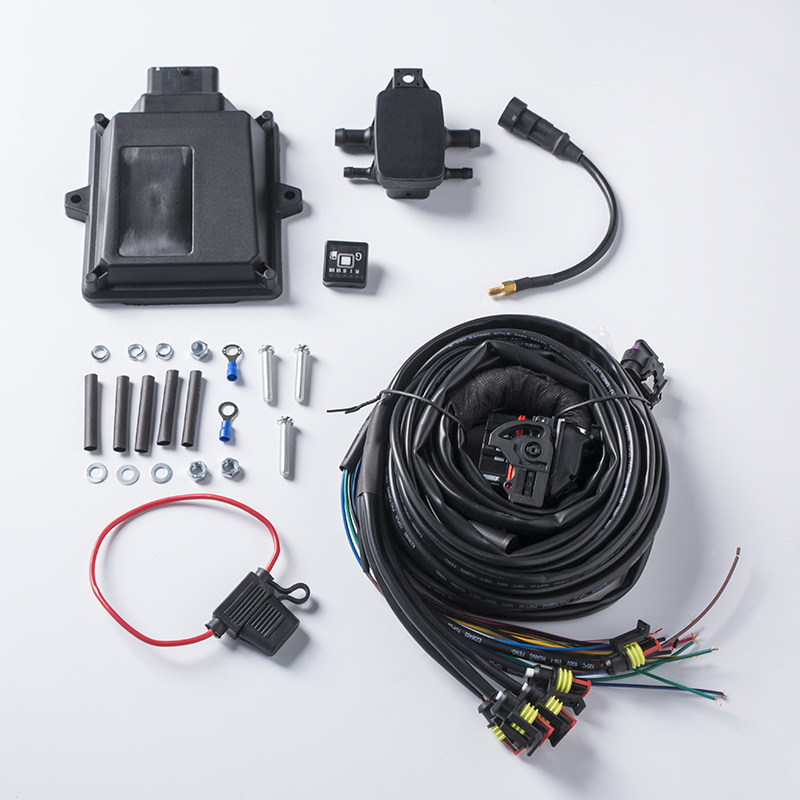How does the self-learning function of the CNG ECU identify and compensate for engine performance degradation due to long-term use? As the engine ages, does the self-learning function need to be reset or recalibrated regularly?
The self-learning function of the CNG ECU (electronic control unit) continuously monitors the various sensor signals of the engine and adjusts the engine's operating parameters based on these signals to optimize engine performance and fuel efficiency. When the engine performance degrades due to long-term use, the self-learning function of the CNG ECU will identify and compensate for this performance degradation through the following steps:
Sensor signal monitoring:
The ECU continuously monitors various sensor signals from the engine, such as oxygen sensors, temperature sensors, air pressure sensors, and speed sensors. These sensors provide real-time data about the engine's operating status.
Performance degradation identification:
If the engine performance degrades, these sensor signals will change. For example, the oxygen sensor may detect reduced combustion efficiency, the temperature sensor may indicate that the engine is running too hot, and so on.
The ECU identifies the degradation of engine performance by analyzing these changes and comparing it with the data during normal operation.
Automatic adjustment compensation:
After identifying the engine performance degradation, the ECU automatically adjusts the engine's operating parameters to compensate. For example, it may increase the amount of fuel injected, adjust the ignition timing, or change the valve opening to ensure that the engine continues to operate at its best.
As for whether the self-learning function of the CNG ECU needs to be reset or recalibrated regularly, this usually depends on several factors:
Maintenance cycle: Regular maintenance items such as regular changes of engine oil and air filters as recommended by the vehicle manufacturer can keep the engine in good condition and reduce the possibility of performance degradation. If the engine is properly maintained, the ECU's self-learning function may not need to be reset or calibrated frequently.
Engine failure: If the engine fails or is repaired, especially if it involves sensors or control systems, the ECU may need to be reset or recalibrated. This is because the failure or repair may cause the data recorded by the ECU to no longer be accurate, and the learning process needs to be restarted.
Degree of performance degradation: If the engine performance degradation is severe and cannot be effectively compensated by the ECU's self-learning function, more in-depth diagnosis and repair may be required. In this case, resetting or recalibrating the ECU may not be the best way to solve the problem.
The self-learning function of the CNG ECU is able to identify and compensate for the engine's performance degradation due to long-term use. However, whether a regular reset or recalibration is needed depends on the maintenance of the engine, the fault conditions, and the degree of performance degradation. In most cases, following the vehicle manufacturer's maintenance recommendations and performing regular maintenance is the key to maintaining engine performance and ECU function properly.


 English
English Español
Español






